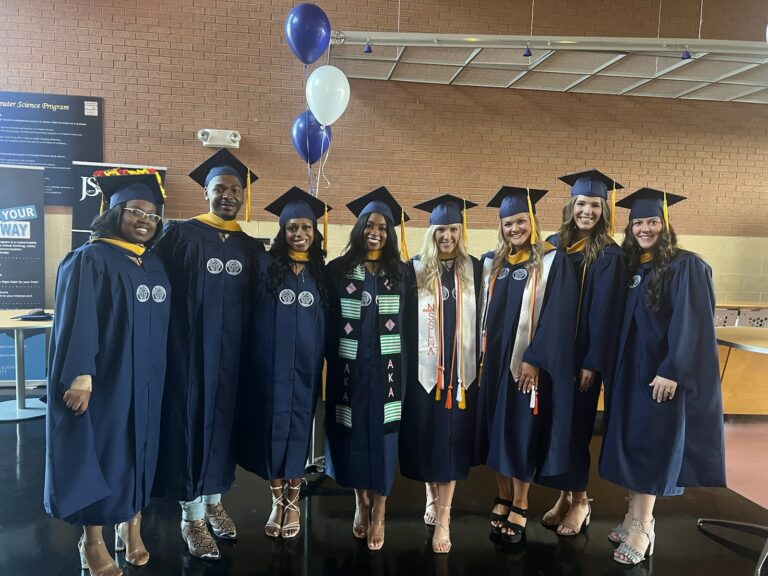Prospective Students
College of Health Sciences
The Department of Communicative Disorders operates the Central Mississippi Speech, Language, and Hearing Clinic to facilitate the clinical education of students in speech-language pathology, facilitate faculty-student research, and to provide services to person with speech, language, cognitive, swallowing and/or hearing disorders in Jackson and the surrounding counties.
Prospective Students
The Department of Communicative Disorders at Jackson State University offers two degrees: Master of Science and Bachelor of Science. Additionally, a Post-Baccalaureate Program is offered for individuals who do not have an undergraduate degree in Communicative Disorders. The program operates the Central Mississippi Speech, Language and Hearing Clinic to facilitate the clinical education of students in speech-language pathology and to provide services to persons across the life span with speech, language, cognitive, swallowing and/or hearing disorders in Jackson and the surrounding cities. The department is also home to an undergraduate and graduate chapter of the National Student Speech Language Hearing Association (NSSLHA)
Quality Education
The mission of the Communicative Disorders program is to provide quality education to pre-professional and graduate students from diverse populations who are majoring in Communicative Disorders by offering educational experiences that require the application of knowledge of normal and abnormal communication, critical thinking, data analysis, the use of professional oral and written communication, and the infusion of technology, when possible, for the prevention, assessment and intervention of communication disorders.
Preparing Professionals
The program in graduate education will guide graduate students to: (a) acquire the knowledge and develop the skills, competencies and attitudes that are essential for the prevention, assessment and intervention of communicative disorders, and the safe, effective, and efficient practice of entry-level speech-language pathology, (b) develop the ability to analyze, synthesize, and evaluate data, and to conduct research, (c) provide professional and public service to local, state, national, and world communities, (d) continue their professional growth by exploring developments in the profession and learning new models of prevention, assessment and intervention, and (e) develop an understanding and appreciation of ethnic and cultural diversity on normal and disordered communication.
What To Expect
READY TO JOIN?
For more information, please contact us at (601) 979-1143. We look forward to meeting with you and seeing how our program can help you achieve your goals.



